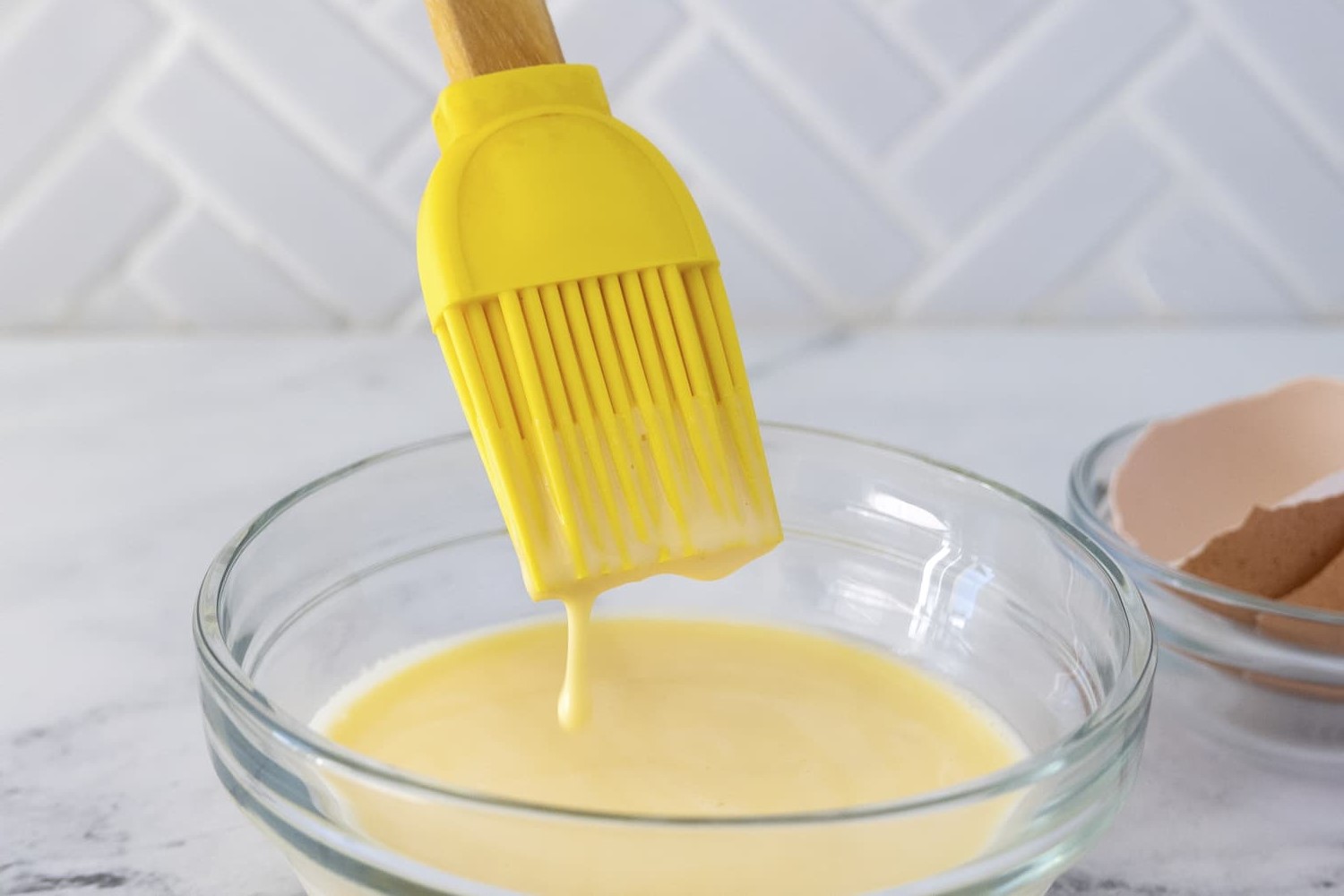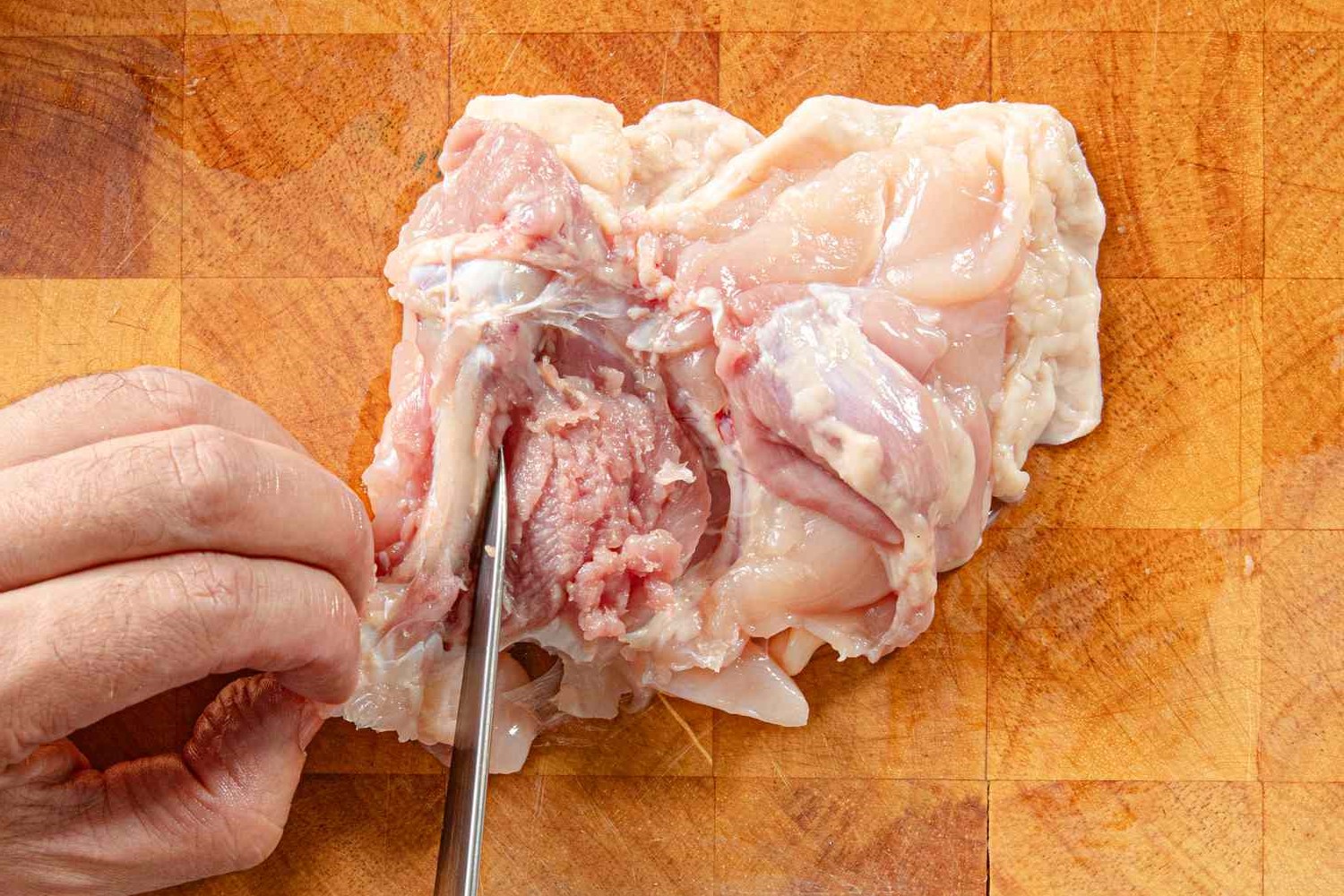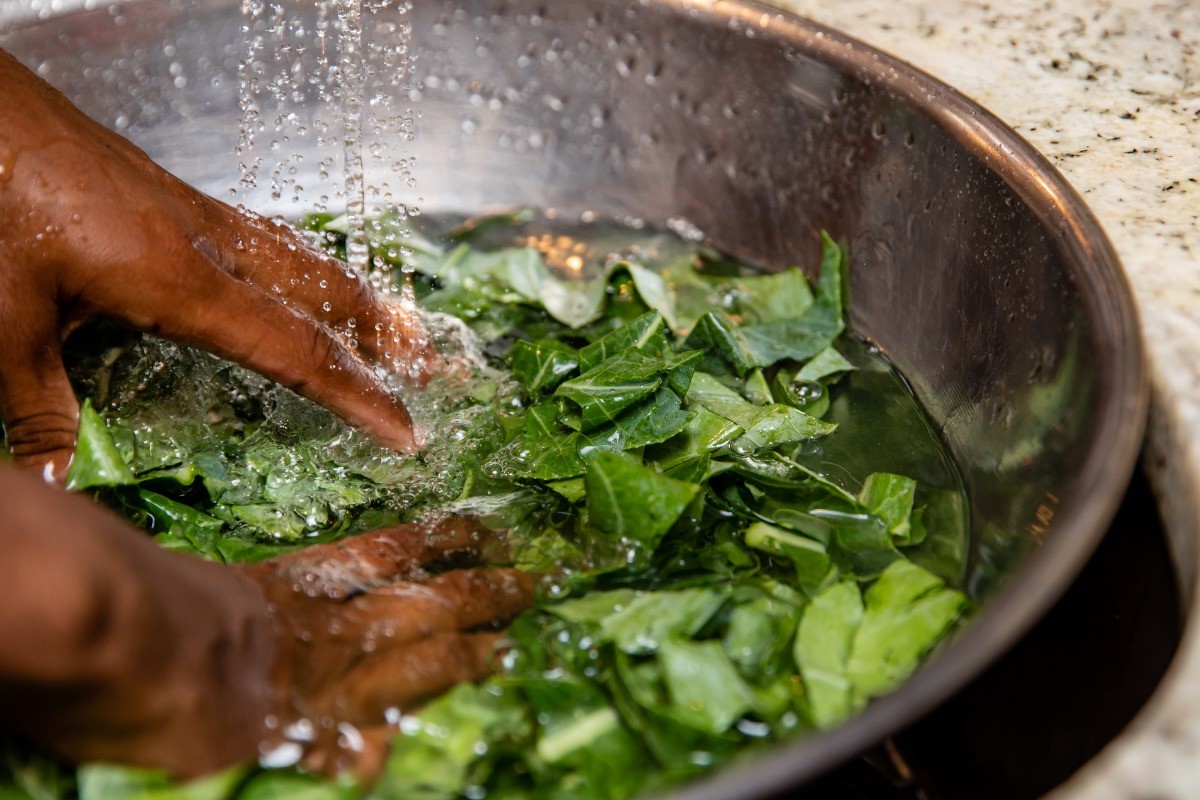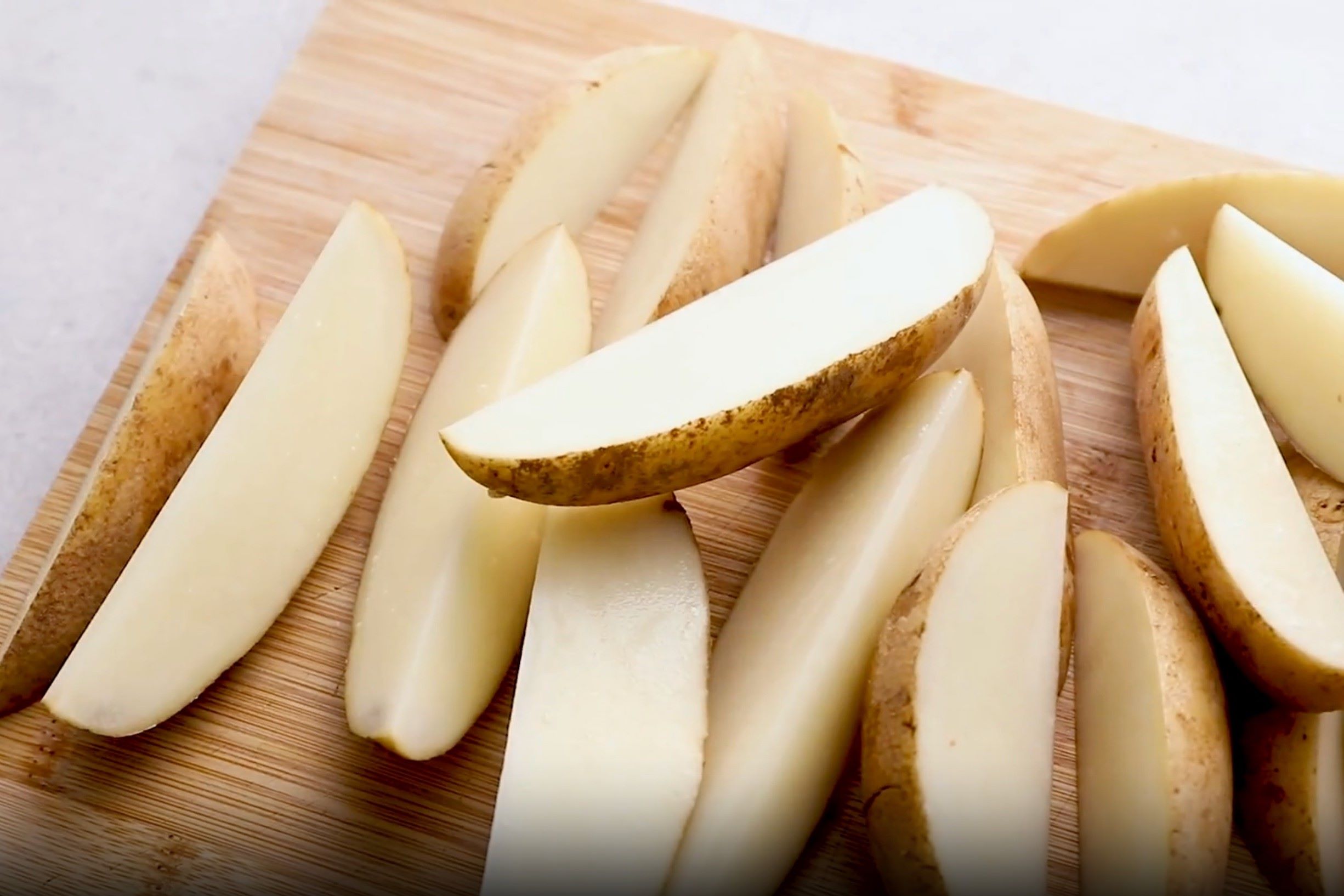Home>Food and Cooking>How To Cook Boudin


Food and Cooking
How To Cook Boudin
Published: February 27, 2024
Learn how to cook boudin with our easy step-by-step guide. Discover delicious recipes and cooking tips for food enthusiasts. Perfect for food and cooking enthusiasts!
(Many of the links in this article redirect to a specific reviewed product. Your purchase of these products through affiliate links helps to generate commission for Noodls.com, at no extra cost. Learn more)
Table of Contents
Introduction
Cooking boudin is a delightful culinary adventure that brings the rich flavors of Cajun cuisine to your kitchen. Whether you're a seasoned chef or a novice cook, mastering the art of preparing this traditional Louisiana sausage dish can be a rewarding experience. From selecting the finest ingredients to savoring the savory aroma that fills the air as it cooks, every step of the process is a celebration of flavor and tradition.
In this comprehensive guide, we will delve into the intricacies of cooking boudin, exploring the essential ingredients, the equipment needed, and the step-by-step process to create a mouthwatering dish that will tantalize your taste buds. Whether you're hosting a gathering with friends or simply craving a taste of the South, learning how to cook boudin will undoubtedly elevate your culinary repertoire.
So, roll up your sleeves, gather your kitchen essentials, and prepare to embark on a culinary journey that will transport you to the heart of Louisiana's vibrant food culture. With a dash of enthusiasm and a sprinkle of culinary curiosity, you're ready to unlock the secrets of crafting this beloved Cajun delicacy. Let's dive into the world of boudin and discover the art of creating a dish that embodies the soul of Louisiana's culinary heritage.
What is Boudin?
Boudin, pronounced as "boo-dan," is a beloved staple of Cajun and Creole cuisine, hailing from the vibrant culinary landscape of Louisiana. This iconic dish is a type of sausage that encapsulates the essence of Southern comfort food, boasting a rich tapestry of flavors and textures. What sets boudin apart is its unique blend of ingredients, which typically includes pork, rice, onions, and a medley of herbs and spices. The result is a savory, aromatic sausage that embodies the cultural heritage and culinary ingenuity of the region.
Traditionally, boudin is encased in a natural casing, such as pork intestine, which adds a distinctive snap and succulence to each bite. The sausage is often steamed or simmered to perfection, allowing the flavors to meld and the ingredients to harmonize, creating a symphony of taste that is both comforting and invigorating.
Boudin comes in various forms, ranging from boudin blanc, a white sausage made with pork and rice, to boudin rouge, a variation that incorporates pork blood, lending it a deep, robust flavor. Additionally, boudin can be found in both link and boudin ball forms, offering versatility in presentation and serving options.
This beloved dish holds a special place in the hearts of Louisianans, serving as a culinary emblem that reflects the region's diverse cultural influences and deep-rooted traditions. Whether enjoyed as a hearty snack, a flavorful addition to a meal, or the centerpiece of a festive gathering, boudin embodies the spirit of communal dining and the art of savoring life's simple pleasures.
In essence, boudin is more than just a sausage; it is a celebration of heritage, a testament to the art of blending flavors, and a symbol of the warmth and hospitality that define Southern cooking. With each savory bite, boudin invites you to partake in a culinary journey that transcends time and place, inviting you to savor the essence of Louisiana's culinary legacy.
Ingredients
To embark on the flavorful journey of cooking boudin, it is essential to gather a harmonious ensemble of ingredients that will infuse the sausage with its signature taste and texture. Each component plays a pivotal role in creating the symphony of flavors that defines this beloved Cajun dish. Here's a closer look at the essential ingredients required to craft a delectable batch of boudin:
1. Pork:
The foundation of boudin lies in the rich, succulent flavors of pork. Whether using pork shoulder, pork liver, or a combination of both, the meat forms the heart of the sausage, providing a robust and savory base that intertwines with the other ingredients to create a harmonious blend of flavors.
2. Rice:
A fundamental element of boudin is the inclusion of rice, which not only adds a delightful textural contrast but also serves as a canvas for absorbing the aromatic seasonings and savory juices of the pork. The rice contributes to the sausage's satisfying mouthfeel and plays a crucial role in balancing the overall flavor profile.
3. Onions:
The addition of onions brings a subtle sweetness and depth to the boudin, enhancing its aromatic appeal and contributing to the complexity of flavors. Whether finely diced or sautéed to golden perfection, onions infuse the sausage with a nuanced layer of savory-sweet notes that elevate its overall taste.
4. Herbs and Spices:
A medley of herbs and spices, such as thyme, parsley, cayenne pepper, and paprika, bestows boudin with its distinctive Cajun flair. These aromatic seasonings impart a symphony of flavors, ranging from earthy and herbaceous to subtly spicy, creating a sensory experience that captivates the palate with each savory bite.
5. Seasoning Blend:
A signature seasoning blend, often featuring Cajun or Creole seasoning, is essential for imbuing the boudin with the authentic taste of Louisiana cuisine. This carefully curated blend of spices and seasonings adds depth, warmth, and a touch of heat, ensuring that each mouthful of boudin delivers a satisfying burst of flavor.
6. Natural Casings:
To encase the flavorful mixture of pork, rice, and seasonings, natural casings, typically made from pork intestine, are used to form the distinctive shape of the boudin sausage. The casing not only holds the ingredients together but also contributes to the sausage's succulent texture and satisfying snap when cooked.
7. Broth or Stock:
The addition of broth or stock, whether chicken or pork, serves to moisten the boudin mixture, infusing it with an extra layer of savory richness. This liquid component helps bind the ingredients together and ensures that the boudin maintains its tender, juicy consistency during the cooking process.
By assembling these essential ingredients in the right proportions, you set the stage for creating a batch of boudin that embodies the essence of Cajun culinary tradition. With the foundation laid by these key components, you are poised to embark on the next steps of the boudin-making process, where these ingredients will harmonize to yield a delectable sausage that pays homage to the vibrant flavors of Louisiana.
Equipment Needed
Embarking on the culinary journey of crafting boudin requires a selection of essential kitchen tools and equipment that will facilitate the seamless preparation of this beloved Cajun dish. From traditional cookware to specialized utensils, assembling the right equipment is crucial for ensuring a smooth and efficient boudin-making process. Here's a detailed look at the equipment needed to embark on your boudin-making adventure:
-
Cutting Board and Knife: A sturdy cutting board and a sharp knife are indispensable for preparing the ingredients, such as dicing the pork, onions, and other components to the desired size. A reliable knife ensures precision and efficiency, allowing you to finely chop the ingredients with ease.
-
Mixing Bowls: Having a set of mixing bowls in various sizes is essential for combining the pork, rice, onions, herbs, and spices. These versatile bowls provide ample space for blending the ingredients thoroughly, ensuring that the flavors meld harmoniously.
-
Cooking Pot or Dutch Oven: A spacious cooking pot or Dutch oven serves as the vessel for simmering the boudin mixture to perfection. Its generous capacity accommodates the ingredients and allows for gentle cooking, enabling the flavors to develop and the sausage to attain its desired texture.
-
Sausage Stuffer or Piping Bag: When it comes to shaping the boudin mixture into sausages, a sausage stuffer or a piping bag equipped with a large nozzle is indispensable. These tools facilitate the filling of the natural casings with the savory boudin mixture, ensuring a uniform and professional presentation.
-
Natural Casings: Acquiring natural casings, typically made from pork intestine, is essential for encasing the boudin mixture and forming the characteristic sausage shape. These casings contribute to the sausage's texture and provide an authentic appearance, enhancing the overall culinary experience.
-
Steamer or Large Pot with Steaming Basket: To cook the boudin sausages, a steamer or a large pot equipped with a steaming basket is essential. This allows for gentle and even cooking, ensuring that the boudin retains its moisture and achieves a succulent texture.
-
Kitchen Thermometer: A reliable kitchen thermometer is crucial for monitoring the internal temperature of the boudin sausages during the cooking process. This ensures that the sausages reach the appropriate level of doneness, guaranteeing both safety and optimal flavor.
By assembling these essential tools and equipment, you are well-equipped to embark on the boudin-making journey with confidence and precision. Each piece of equipment plays a vital role in shaping the culinary experience, from the meticulous preparation of ingredients to the artful creation of the boudin sausages. With the right tools at your disposal, you are poised to immerse yourself in the time-honored tradition of crafting boudin, infusing each step with the spirit of Louisiana's vibrant culinary heritage.
Step 1: Preparing the Ingredients
The first step in embarking on the culinary journey of crafting boudin is the meticulous preparation of the essential ingredients that form the foundation of this beloved Cajun dish. Each component plays a pivotal role in shaping the flavors and textures that define boudin, and attention to detail during the preparation stage sets the stage for a truly exceptional end result.
1. Preparing the Pork:
Begin by selecting high-quality pork, such as pork shoulder or pork liver, and ensure that it is trimmed of excess fat and sinew. Cut the pork into manageable pieces, taking care to remove any tough membranes or gristle. The pork should be diced into uniform cubes to promote even cooking and a consistent texture in the finished boudin.
Read more: How To Thicken Mashed Potatoes
2. Cooking the Rice:
In a separate pot, prepare the rice according to the package instructions, ensuring that it is cooked to a tender yet slightly firm consistency. Once cooked, allow the rice to cool slightly before incorporating it into the boudin mixture. The rice serves as a vital component, contributing to the sausage's pleasing texture and serving as a canvas for absorbing the savory flavors of the other ingredients.
3. Sautéing the Onions:
In a skillet, sauté finely diced onions until they turn translucent and develop a golden hue. The gentle caramelization of the onions imbues the boudin with a subtle sweetness and depth of flavor, elevating its aromatic profile. Take care not to overcook the onions, as they should retain a delicate texture and impart a nuanced sweetness to the boudin mixture.
4. Blending the Herbs and Spices:
Combine a carefully curated selection of herbs and spices, such as thyme, parsley, cayenne pepper, and paprika, in a small bowl. This aromatic blend serves as the soul of the boudin, infusing it with the distinctive flavors and fragrances that define Cajun cuisine. The harmonious marriage of these seasonings creates a symphony of taste that enlivens the palate with each savory bite.
5. Mixing the Ingredients:
In a large mixing bowl, combine the prepared pork, cooked rice, sautéed onions, and the herb and spice blend. Thoroughly incorporate the ingredients, ensuring that the flavors meld seamlessly and the textures harmonize. The careful blending of these components is essential for creating a boudin mixture that is well-balanced and brimming with savory allure.
By meticulously preparing each ingredient with precision and care, you lay the groundwork for a boudin mixture that embodies the essence of Cajun culinary tradition. The artful combination of pork, rice, onions, and aromatic seasonings sets the stage for a boudin-making process that is steeped in tradition and brimming with the promise of a truly exceptional culinary experience.
Read more: How To Defrost Bacon
Step 2: Cooking the Boudin
Once the boudin mixture has been meticulously prepared and the flavors have melded harmoniously, the next crucial step in the culinary journey is the artful process of cooking the boudin. This stage is where the carefully crafted flavors and textures of the sausage come to life, culminating in a dish that embodies the soul of Cajun cuisine. The cooking process is a delicate dance of heat and time, allowing the boudin to achieve its signature succulence and depth of flavor.
1. Filling the Casings:
Using a sausage stuffer or a piping bag equipped with a large nozzle, carefully fill the natural casings with the boudin mixture. The casings should be generously filled, ensuring a plump and uniform shape that will contribute to the sausage's satisfying texture and appearance.
2. Simmering the Boudin:
In a spacious cooking pot or Dutch oven, arrange the filled boudin sausages in a single layer, taking care not to overcrowd the pot. Add enough water or broth to cover the sausages, allowing them to gently simmer over low to medium heat. The gentle simmering process is essential for ensuring that the boudin cooks evenly and retains its moisture, resulting in a tender and succulent texture.
3. Monitoring the Cooking Process:
As the boudin simmers, it is crucial to monitor the cooking process closely, ensuring that the sausages reach the appropriate level of doneness. Using a kitchen thermometer, check the internal temperature of the boudin, ensuring that it reaches a safe temperature for consumption. This careful monitoring guarantees that the boudin achieves a perfect balance of tenderness and juiciness, inviting you to savor each delectable bite.
Read more: How To Cook Orzo
4. Allowing the Boudin to Rest:
Once the boudin sausages have been cooked to perfection, remove them from the pot and allow them to rest briefly. This resting period allows the flavors to further meld and the sausages to attain their ideal texture, ensuring that each bite is a symphony of savory bliss.
The cooking process is a testament to the artistry of Cajun cuisine, where time-honored techniques and a reverence for flavor converge to create a dish that captivates the senses. As the boudin sausages simmer gently and the aromas fill the air, the essence of Louisiana's culinary heritage comes to life, inviting you to partake in a celebration of tradition and taste.
Step 3: Serving and Enjoying
The culmination of the boudin-making journey is the moment of serving and savoring this beloved Cajun delicacy. As the boudin sausages are cooked to perfection and the aromas of savory spices fill the air, the stage is set for a culinary experience that celebrates the vibrant flavors and communal spirit of Louisiana's culinary heritage.
1. Presentation and Garnishes:
When it comes to serving boudin, presentation plays a pivotal role in elevating the dining experience. Arrange the cooked boudin sausages on a platter, allowing their plump and succulent forms to take center stage. Consider garnishing the platter with vibrant accents, such as sprigs of fresh parsley or thinly sliced green onions, adding a touch of visual appeal to the presentation.
2. Accompaniments and Pairings:
Boudin pairs harmoniously with an array of accompaniments that complement its robust flavors. Consider serving the boudin alongside classic Cajun staples, such as creamy coleslaw, tangy mustard, or a zesty remoulade sauce. Additionally, freshly baked French bread or crusty baguettes provide the perfect vehicle for savoring the boudin, allowing you to create delectable boudin sandwiches that showcase the sausage's savory allure.
Read more: How To Chop Cilantro
3. Communal Dining and Festive Gatherings:
The act of enjoying boudin extends beyond the realm of individual dining; it embodies the spirit of communal feasting and conviviality. Whether shared at a festive gathering, a casual backyard barbecue, or a lively potluck, boudin invites friends and family to come together and savor the flavors of Louisiana's culinary legacy. The convivial atmosphere and shared enjoyment of this beloved dish create lasting memories and forge connections through the joy of communal dining.
4. Savoring the Flavors:
As the boudin is presented and the table is set, take a moment to savor the flavors and aromas that emanate from the dish. Each bite offers a symphony of textures and tastes, from the tender succulence of the sausage to the aromatic blend of herbs and spices. Allow the flavors to unfold on your palate, savoring the culmination of the boudin-making process and the rich tapestry of flavors that define this iconic Cajun dish.
5. Embracing Tradition and Culinary Heritage:
Serving and enjoying boudin is not merely a culinary act; it is a celebration of tradition and culinary heritage. With each bite, you partake in a time-honored tradition that has been passed down through generations, embodying the warmth and hospitality that define Louisiana's vibrant food culture. Embrace the spirit of Cajun cuisine and savor the essence of boudin, allowing its flavors to transport you to the heart of Louisiana's culinary landscape.
As the boudin is savored and enjoyed, it becomes a testament to the art of crafting flavors and the joy of communal dining, inviting you to partake in a culinary experience that transcends the ordinary and celebrates the extraordinary flavors of Cajun cuisine.









